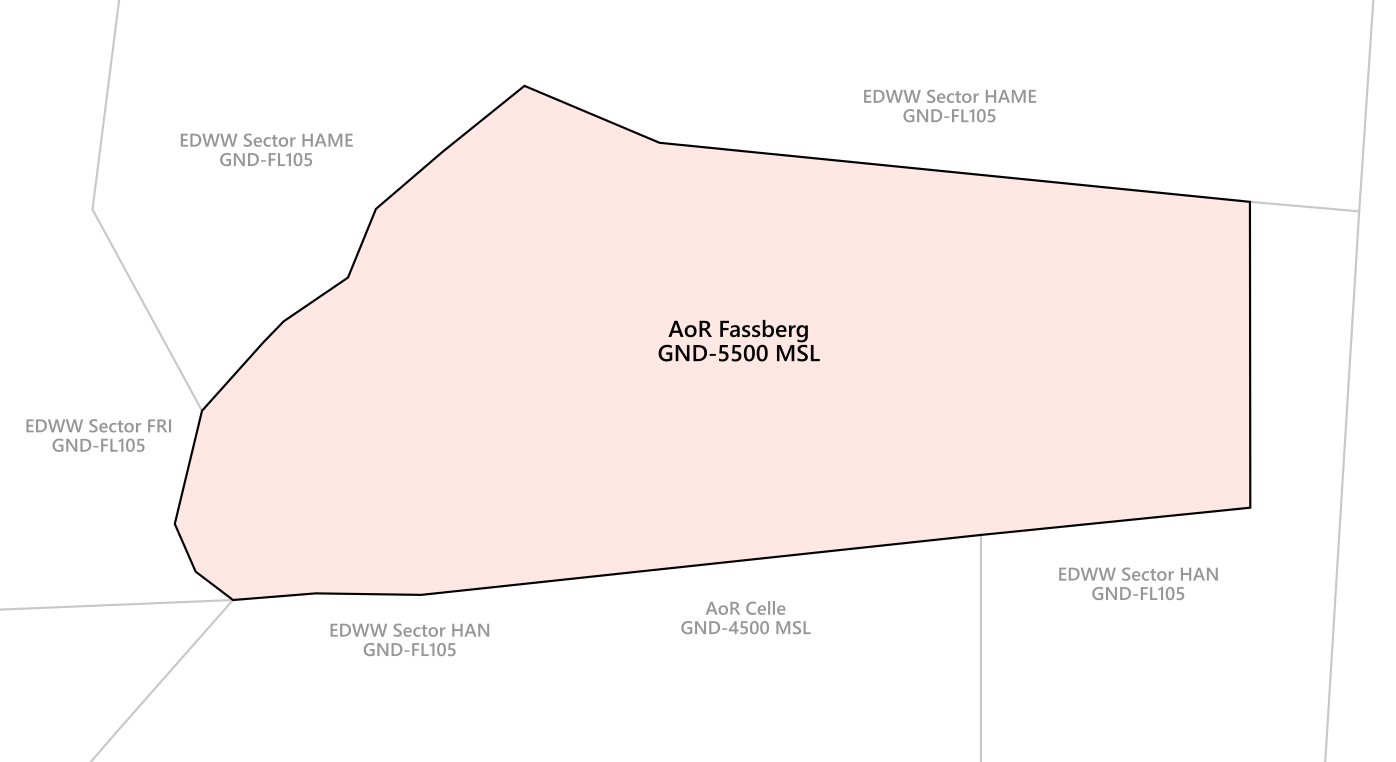Radar
Area of Responsibility
Fassberg Radar is responsible for departing and arriving traffic from/to ETHS.
When online, Fassberg Radar activates its delegated AoR within the Bremen ACC sector Hannover (HAN). Full responsibility is delegated to Fassberg Radar for this airspace.
 AoR Fassberg
AoR Fassberg
Fassberg Radar shall inform Bremen ACC sectors HAN, FRI and HAME as well as Celle Radar (ETHC APP) about the opening and closing of AoR Fassberg immediately!
If Fassberg Radar is offline, Celle Radar (ETHC APP) will take over full responsibility for AoR Fassberg and top-down responsibilities at ETHS.
Procedures
Arriving Traffic
- Arriving traffic is always coordinated individually between Bremen Radar, Celle Radar and Fassberg Radar ("Radar Handover")
- It's expected that Fassberg Radar accepts or otherwise states the sector entry conditions during coordination.
Departing Traffic
- Departing IFR traffic will be transferred from Fassberg Tower to Fassberg Radar initially.
- Fassberg Radar is responsible for verifying mode C readout and identifying the departing aircraft
- Usually, Fassberg Radar shall coordinate a further climb with EDWW before departure release or coordinate a general release of the climb. Preferably, this coordination is combined with IFR clearance or departure release. If no further climb is coordinated, departing IFR traffic leaving the AoR shall be transferred to Bremen Radar after identification.
- Fassberg Radar is responsible for verifying mode C readout and identifying the departing aircraft
ED-R 33A
During the activity of ED-R 33A, Fassberg Radar shall coordinate a crossing clearance for aircraft on an instrument approach.
Approach Types
Runway 09
- SRA
- PAR
Runway 27
- SRA
- PAR
Since Fassberg Precision is currently not implemented on VATSIM, PAR approaches can only be conducted if traffic levels permit - if necessary, Bückeburg Radar can coordinate with civilian ATC to keep other inbound traffic outside of the airspace while a PAR approach is taking place; whether this is possible, however, depends on the current workload of civilian ATC
